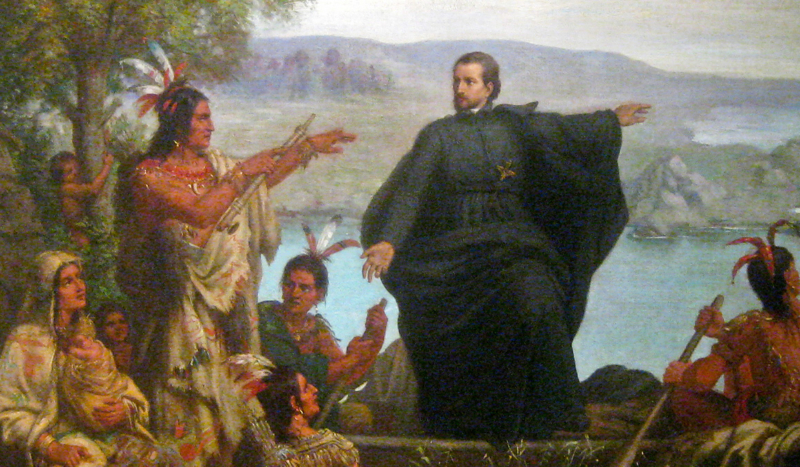
NOTE: Enjoy this excerpt from The American Daily Reader, by CatholicVote president Brian Burch and Emily Stimpson Chapman. To order the complete volume, visit the CatholicVote store today!
Some little boys dream of becoming explorers. Others dream of becoming priests. Father Jacques Marquette was one of the lucky few who grew up to become both.
Born in France in 1637, Marquette first pursued his dream of religious life, entering the Jesuits at 17. Twelve years later, in 1666, Marquette’s Superiors sent the newly ordained priest across the Atlantic to evangelize the indigenous peoples of the Americas. Within two years of his arrival in the Great Lakes region, Marquette fluently spoke six Native American languages. That endeared him to the local tribes and enabled Marquette to make quick work of founding missions in Sault Sainte Marie and LaPointe (in present-day Michigan and Wisconsin).
While serving at LaPointe, Marquette befriended members of the Illinois Tribe, who invited him to travel south along the great Mesipi (Mississippi River) and teach their people. Eager to take them up on the offer, Marquette informed his superiors of both the request and the river.
Recognizing the importance of the river for spreading the Gospel (as well as the fur trade), the Jesuits agreed to a joint mission, allowing Marquette to join his fur trader friend, Louis Jolliet, and explore the river while also evangelizing the peoples they encountered.
In May 1673, with two canoes and five companions, the pair set out from Lake Michigan, went up through Green Bay, and found the rumored river near present-day Prairie du Chien, Wisconsin. For the next month, they traveled south along the Mississippi, befriending numerous tribes as they went.
By mid-July, they came within 435 miles of the Gulf of Mexico. There, however, they learned that Spanish explorers (who didn’t care for the French) were close by. Wanting to avoid conflict, they turned around and rowed north.
Although Marquette hoped to return along the same route a second time, his priestly duties proved more perilous than his exploring. He fell ill while establishing a mission in Illinois the following winter. He died on May 18, 1675.

